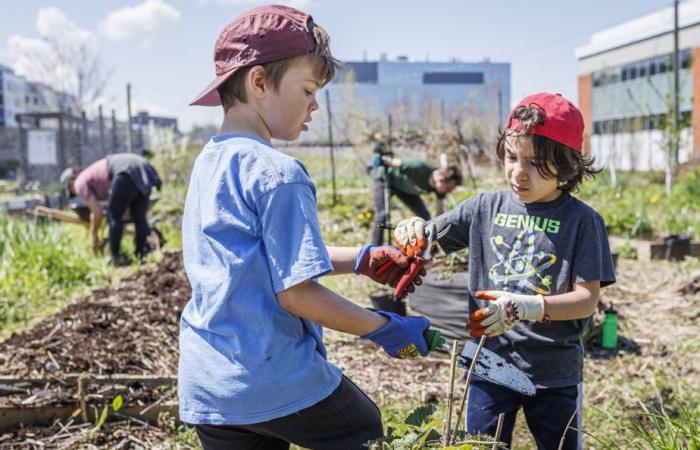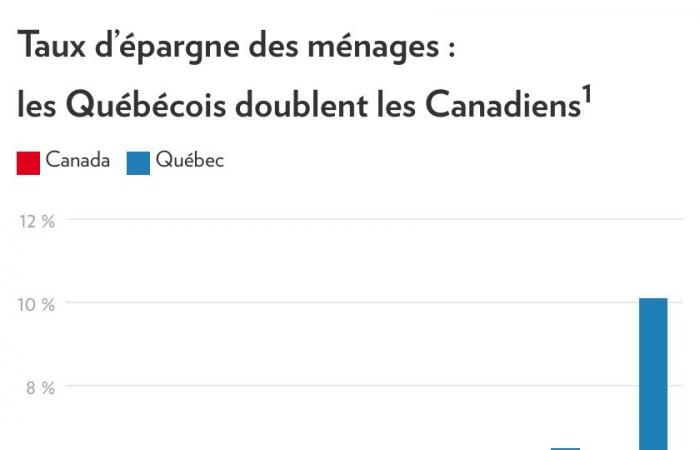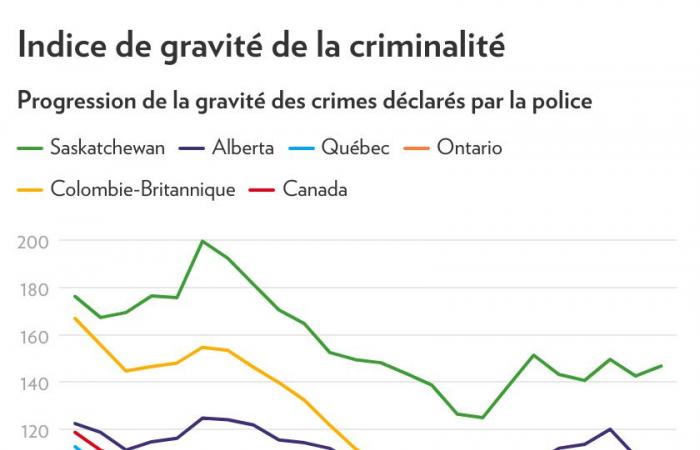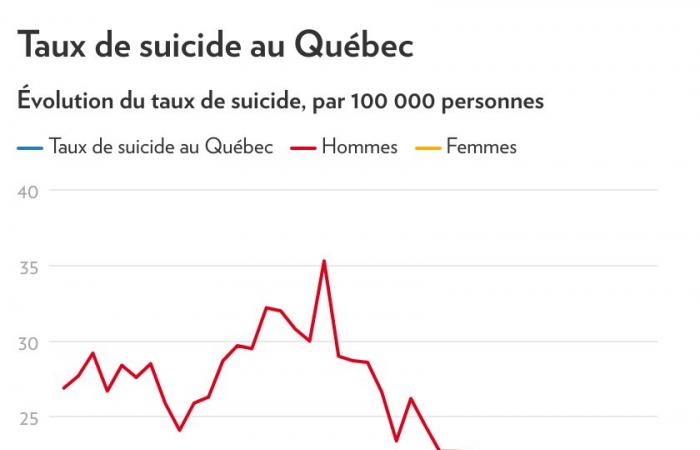In Money and happinessour journalist Nicolas Bérubé offers his thoughts on enrichment every Sunday. His texts are sent as a newsletter the next day.
Posted at 2:03 a.m.
Updated at 8:00 a.m.
A columnist from a Montreal daily asked an interesting question the other day.
“Name me ONE THING that works in Quebec. A ! » The capital letters are his.
His argument: the news is full of scandals, examples of corruption, hospital emergency rooms are overflowing, etc. In short, the news is depressing.
I’m going to take the bait. Here are 10 things that work in Quebec.
1) Quebecers have never saved so much
The savings rate of Quebecers is constantly increasing, and has even reached a peak in 2023, as my colleague Francis Vailles wrote last summer. Quebecers set aside 10.1% of their disposable income on average. That’s almost twice the Canadian average, according to Statistics Canada data.
2) Farmers make record incomes
Agricultural production is reaching record highs in Quebec, and incomes have never been higher for farmers. In 2022, agricultural cash receipts from the market reached $12.7 billion, a sharp increase of 15% compared to 2021, according to the Quebec government.
3) Crime is down
As long as there are crimes, there will be headlines. But were we safer before? The numbers tell us no. Despite a slight increase recently, serious crimes (hate crimes, rapes, murders) have experienced a spectacular decline in the province since the end of the 1990s. It is even in Quebec that the Crime Severity Index (CGI) is the lowest in the country: it stands at 54.3, while the Canadian average is 73.7.

4) The suicide rate is decreasing
Suicide is a complex problem that is all too present around us. It is also a problem that is decreasing in Quebec society. 25 years ago, the suicide rate was 22.1 per 100,000 people, according to the National Institute of Public Health of Quebec. The rate for 2021 was 11.7 per 100,000 people. A drop of 47%.

5) Adolescents no longer become mothers
High school girls becoming mothers are a largely bygone phenomenon. In the year 2000, 14 out of 1000 adolescents aged 15 to 19 had already given birth to a child in Quebec. In 2023, there will be only 4 out of 1000. The rate of voluntary termination of pregnancy (abortion) among adolescents is also decreasing.
6) We have never lived this long
In 2023, life expectancy at birth in Quebec was estimated at 82.5 years, according to the Institute of Statistics of Quebec. In the United States, it was 77.5 years. This means that a child born in Quebec today will live on average five years longer than a child born south of the border. A reality partly due to the universal health system, a more physically active population and a lower level of socioeconomic gaps.
7) Quebecers have never been so educated
Around 30% of people aged 25 to 64 have a university degree in Quebec, a percentage that has been increasing for generations. In 1960, barely one in ten young Quebec adults attended university. Quebecers have never been as educated as they are today. Among doctoral holders in Quebec, half (50%) are immigrants or non-permanent residents.
8) Eating costs less than before
We’ve all noticed the price increases at the grocery store in recent years. What is less striking is that the weight of food purchases in the family budget has been decreasing for generations. According to Dalhousie University, the percentage of income spent on food has fallen by about half in Canada in half a century. Canadians spent 19.6% of their income on food on average in 1969, compared to 11% today. That leaves money to buy iPhones, subscribe to Netflix, etc.
9) We breathe purer air
Air quality is good most of the time in Quebec’s large cities. A few generations ago, when people heated with wood and coal, the air was atrocious. Do you know why the University of Montreal was built on the slopes of Mount Royal in the early 1930s? This is partly to be far from the city center and its unbreathable air. “Above, an immense sky; around you, pure air,” enthused the rector of the University of Montreal, Olivier Maurault, speaking of the new campus.
10) Hours worked are decreasing
We do more with less. As everywhere in rich countries, hours spent at work are decreasing in Quebec. In 1976, Quebecers spent 35.5 hours per week working, compared to 31.8 in 2019, a decrease of 10%. If we go back even further, the change is more striking: around 1900, people worked an average of 60 hours a week, spread over six days. And their standard of living was only a fraction of what we take for granted today.
I could go on like this for a long time.
The lesson here is that the problems will always be more spectacular than the solutions.
Generations of ingenious Quebecers have worked hard to allow us to have a better life than them. The least we can do is acknowledge it.
I am not pretending that everything is fine – that would be simplistic and naive of me.
But relying on the spirit of the times and the headlines to form an opinion of the health of the province is the perfect recipe for spending your time being indignant about the fate of society. I don’t wish that on anyone.
As author Morgan Housel wrote: “The past was not as good as you remember, the present is not as bad as it seems, and the future will be better than you think.” ‘anticipate. »









